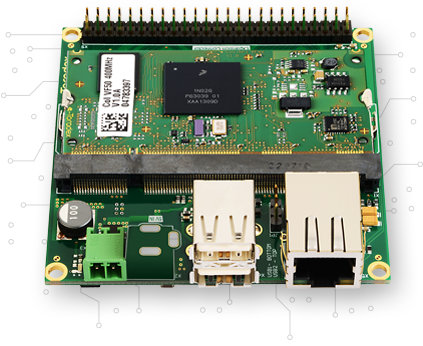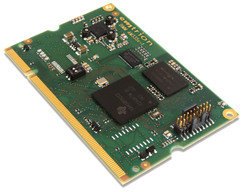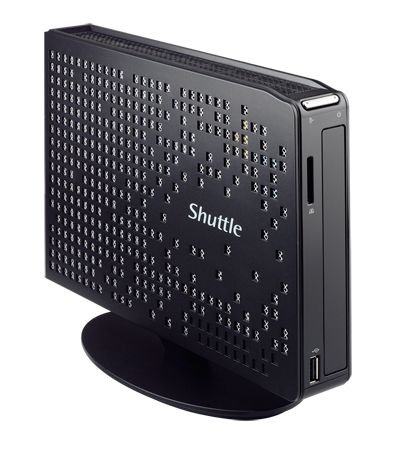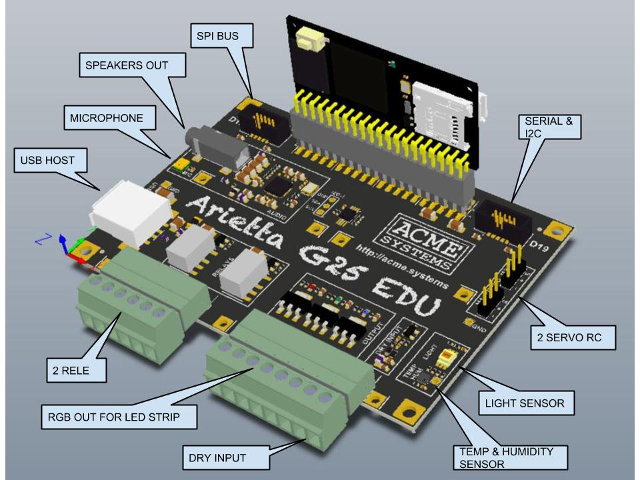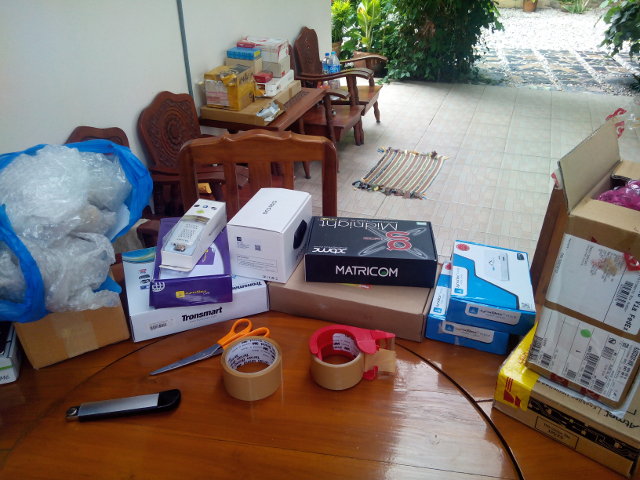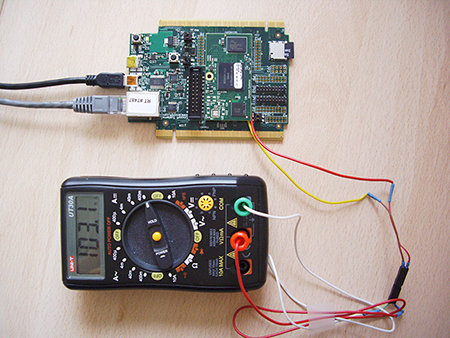Toradex has launched what they call “Customized SBCs” (Single Board Computers) comprised of the usual carrier board an computer-on-module (CoM) combination, using their Apalis & Colibri families. The company offers various combination of Freescale i.MX6 and Vybrid VF50 single board computers, with price starting at 39 Euros for 1k order, or 49 Euros for samples. I’ve already featured Toradex Colibri VF50 (and VF61) modules in another post, but to summarize Colibri VF50 is a computer modules based on Freescale Vybrid VF50 ARM Cortex A5 CPU with 64 to 128MB DDR3, and 128MB NAND flash that targets industrial applications requiring long term availability (15 years). VF50 sells as low as 19 Euros per unit for 10k orders. Viola is a new open source hardware carrier board with the following features: Compatible with all Toradex Colibri CoMs External Storage – microSD interface Video – RGB LCD Interface, 4 wire resistive touch interface […]
Emtrion DIMM-AM335x SoM Supports Mainline Linux Kernel
When I cover system-on-modules (SoM), companies will usually provide some BSP (Board Support Packages) for older kernels, and did not submit their changes to mailine kernel, so I was interested in a news from Emtrion entitled “DIMM-AM335x: Linux mainline support ready“, which actually means they’ve done the work to support a recent Linux kernel (3.14) and provides instructions and code (device tree files), but did not submit patches to the linux-arm-kernel mailing list to get their changes added to kernel.org. Let’s look at the hardware specs first: SoC – Texas Instruments Sitara AM335x ARM Cortex A8 processor @ 720Mhz to 1GHz (AM3354 or AM3359) System Memory – onboard 512 MB SDRAM/optional 256 MB Storage – 512 MB NAND Flash (managed) + 2 SD card interfaces Display – LCDs I/F with resolution up to SVGA, with 4-wire touch interface Audio – Analog Audio with SSI I/F USB – USB 2.0 Host […]
Amptek iCon is an ARM Cortex M3 Board for IoT Running uCLinux (Crowdfunding)
Up until now, the only company I ever heard running Linux on ARM Cortex M3/M4 was EmCraft Systems with their system-on-modules and development kits based on Freescale Kinetis, STMicro STM32 and Actel Smartfusion micro-controllers. But there’s now another option thanks to Ampek Technologies, a Canadian based company funded in 2002, and their iCon (Internet Connectivity) board featuring NXP LPC1788 Cortex M3 connected to 64MB RAM which is plenty enough to run uCLinux. The board can be used for applications such as industrial control systems, wireless sensors, or smart home appliances. The iCon board specifications are as follows: MCU – NXP LPC1788 ARM Cortex-M3 MCU @ 120MHz with 512 KB flash memory, and 96 KB SRAM System Memory – 64MB SDRAM (external chip) Storage – 32MB flash for firmware Connectivity – 802.11 b/g/n, Bluetooth 4.0. Ethernet is supported via an add-on module USB – USB 2.0 host port, mini-USB debug port […]
Shuttle Fanless mini PCs Powered by Intel Celeron J1900 Quad Core Bay Trail SoC Sell for $200 and Up
A little while ago, Bay Trail-D (Desktop) motherboards started to show up for about $60 to $70, and I estimated a complete system with RAM, enclosure, and 1TB storage would cost around $250. Thanks to Shuttle XS35V4 and XS36V4, you can now buy such quad core system pre-assembled for well under $300, or just around $200 for a barebone system without RAM or storage. Shuttle XS35V4 / XS36V4 specifications: SoC – Intel Celeron J1900 Quad core processor (Bay Trail-D) @ with Intel 7th generation graphics. System Memory – 1x DDR3L SO-DIMM, up to 8GB DDR3 1333 MHz Storage – 1x 2.5″ SATA HDD / SSD bay, 1x SD card reader. XS35V4 only: optical drive. Connectivity – 10/100/1000M Ethernet (Realtek RTL8411), 802.11b/g/n WLAN support (1T1R), Audio – Realtek ALC269, 2.1 channel High Definition Audio Front panel Power button Power & HDD LEDs SD Card reader 1x USB 2.0 port XS36V4 only […]
Acme Systems Arietta EDU Open Hardware Baseboard for Arietta G25 SoM (ARM9)
Arietta G25 is a tiny system-on-module (SoM) powered by Atmel SAM9G25 ARM9 processor and running Linux that sold for a discount earlier this year (9.9 Euros) for early backers, and is now available for 20 Euros, and support an optional Wi-Fi module for as low as 7 Euros extra. Acme Systems, the company who made the board, is now considering designing and manufacturing an open source hardware baseboard for the module, and is asking for feedback from the community before going ahead. Currently the idea is to have a baseboard with the following: Arietta G25 SoM connector (Vertical mount) 1x USB Host port I2C Sensors – Temperature and Humidity sensor, Light sensor Mosfet output for RGB led strip 2x relay output 1x filtered dry input 2x servo RC motors output Audio interface with embedded microphone and jack for PC speakers using Wolfson WM8731 codec Expansion headers for external modules already […]
Giveaway Week Winners Announced
Regular readers will know that I organized a giveaways last week, with Linux and Android based TV boxes and TV dongles based on Amlogic, Rockchip, and Telechips processors, a total of 8 devices with a combined value closed to $1,000 if purchased new. I’ve now selected all the winners, and send the devices, so it may be nice to list them in one post, even I announced each individual winners in the comment section of each contest. Without further delays, let’s go through the winners and their country of residence, with links to the original individual winner announcements: Jynxbox M1V2 Pure Linux Richard, USA (Facebook contest) Pavlos, Greece (Comment contest) Mele X1000 – Vedas, USA Measy U2C – Umaar, Germany Matricom Gbox Midnight MX2 – Starsolaris, Ukraine Beelink A9 – Alcides, Brazil Jynxbox Live – Greg, Canada Tronsmart Prometheus – Roberto, Portugal All parcels have been sent today by Airmail […]
Low Power Mode (Suspend to RAM) in uCLinux for Freescale Kinetis K70 MCU
All ARM based micro-controllers and processors implement multiple power mode in order to save optimize power usage depending on the tasks. However, I’ve been told by some hobbyists/developers/makers that low power modes are not always implemented in Linux, especially for low cost systems either because of hardware limitations or the software is not implemented. EmCraft Systems has just released their latest embedded (uC-) Linux distributions for the MCU boards, and one of the features now available is “suspend to RAM” for their K70 SoM development kit, based on Freescale Kinetis K70 Cortex M4 MCU, which consume just around 600 to 700 uA @ 3.3V (2 to 2.3 mW) in this low power mode. They have connected a multimeter to measure the current drawn at different power modes. If you want to know all the details, you should probably read the company’s article on “Linux Low-Power Mode on Kinetis“, but I’ll […]
Raspberry Pi Compute Module Development Kit Is Now Available for $200
The Raspberry Pi foundation announced a computer-on-module which they called the (Raspberry Pi) Compute Module that will be mostly software compatible with the Raspberry Pi board, and sell for $30 in quantities. They have now announced the availability of the development kit that includes a baseboard (called Compute IO board), display & camera adapter boards, as well as a 5V power adapter, jumper wires, and a USB cable. As a reminder the Compute Module has the following hardware specifications: SoC – Broadcom BCM2835 ARM 11 processor @ 700 MHz with Videocore IV GPU System Memory – 512MB RAM Storage – 4GB eMMC Flash SoM Connector – DDR2 200-pins SODIMM Dimensions – 67.6x30mm board which fits into a standard DDR2 SODIMM connector The Compute IO Board come with two micro USB connectors (one reserved for power), a USB 2.0 host port, two DSI ports for display, two CSI ports for a […]


